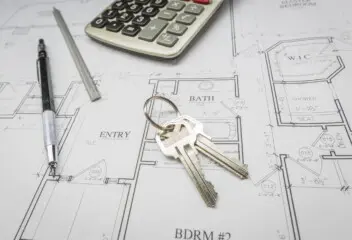Understanding how long does planning permission last is crucial for homeowners, developers, and investors across the UK. Planning permission is a formal approval from local authorities, allowing specific building work, extensions, or conversions to take place legally. Failing to comply with time limits can result in the permission expiring, forcing applicants to start the process again. Being informed about deadlines, requirements, and variations is the first step to a successful project.
Many people often ask how long does planning permission last and whether it covers the entire project duration. Typically, planning permission sets a time limit to begin construction, not necessarily to finish it. Once a material start occurs, such as digging foundations or commencing structural work, the permission generally remains valid for the entire project. This distinction can save homeowners unnecessary reapplications and help maintain compliance with UK planning regulations.
What is Planning Permission?
Planning permission is the legal authorisation required for certain building work and land development. It exists to ensure construction projects comply with local planning policies, maintain neighbourhood aesthetics, and protect the environment. Knowing what planning permission entails is vital before starting any work, as unauthorised construction can result in fines or even orders to remove unauthorised work.
There are different types of planning permission, each with specific rules. Full planning permission approves all project details upfront, whereas outline planning permission grants initial approval in principle, allowing further details to be approved later. Knowing how long does planning permission last depends on the type granted. Outline planning permission often involves multiple stages, each with its own deadlines, so understanding these stages is crucial for compliance.
How Long Does Planning Permission Last?
In the UK, full planning permission typically lasts three years from the date of approval. This three-year period applies to starting “material operations,” which include essential construction tasks like laying foundations or structural work. Once a material start is made, planning permission does not expire, allowing the project to continue until completion.
Outline planning permission differs slightly, as applicants have three years to submit reserved matters and an additional two years to begin construction. Being aware of these timelines is essential to prevent the need for reapplication. Many homeowners and developers frequently ask how long does planning permission last, especially when planning large or phased construction projects. Timely starts and clear records of work are key to maintaining valid permission.
Do You Need Planning Permission?

Not all building work requires planning permission, but many common projects do. Extensions, loft conversions, conservatories, sheds, and garage conversions often require official approval. Ensuring compliance prevents fines and legal issues. Consulting the local planning authority before beginning work clarifies whether your project needs formal approval and the timelines involved.
Permitted development rights sometimes allow minor alterations without planning permission. However, confirming requirements ensures projects remain compliant. Understanding how long does planning permission last is particularly important for these cases, as the duration of approval may still apply even for permitted developments. This knowledge also helps homeowners plan construction schedules efficiently and avoid potential disputes.
Costs and Fees for Planning Permission
Planning permission is not free, and fees vary depending on the project’s type, size, and complexity. Local authorities set fees for applications, with additional costs possible for consultants, surveys, and documents. Budgeting for these expenses ensures projects can start on time, avoiding delays that could lead to the expiry of permission.
Understanding how long does planning permission last alongside the associated costs allows homeowners to schedule appropriately and avoid unnecessary financial stress. Knowing fees in advance helps applicants make informed decisions about their projects and ensures that deadlines for material starts are achievable. Planning ahead is always the best strategy.
Land and Property with Planning Permission
Some buyers seek land or property with planning permission already granted, as this can reduce risk and save time. Land with valid planning permission allows developers to start construction sooner, provided the deadlines are respected. Verification of existing permissions is essential to confirm they are still valid and comply with local authority records.
When purchasing land with planning permission, it is crucial to know how long does planning permission last. This ensures any approvals have not expired and that the planned project can proceed legally. Understanding these timelines safeguards investments and avoids costly legal or administrative issues later on.
Tips to Avoid Losing Planning Permission
Starting work on time is the most critical factor to maintain planning permission. Applicants should document material starts, keep records, and seek extensions when necessary. These proactive steps help avoid the permission lapsing unexpectedly.
In cases where work has begun without approval, retrospective planning permission may be required. Knowing how long does planning permission last and acting promptly ensures projects remain compliant with UK regulations. Staying informed and organised is key to a smooth construction process and legal protection.
Conclusion
Understanding how long does planning permission last is essential for anyone planning construction or development in the UK. Full planning permission generally lasts three years, while outline permission involves multiple stages with specific deadlines. Knowing timelines, requirements, and strategies to maintain valid permission allows homeowners, developers, and investors to complete projects legally and efficiently.
Frequently Asked Questions
- How long does full planning permission last in the UK?
- What is outline planning permission and how long does it last?
- Do I need planning permission for a conservatory or loft conversion?
- How much does planning permission cost in the UK?
- Can I extend my planning permission if I haven’t started work?
- Do I need planning permission for a shed, garage conversion, or porch?
- What counts as a “material start” for planning permission?
- Can I buy land with planning permission already granted?
- What is retrospective planning permission and when is it needed?
You may also read: Outdoor Wall Lights – Illuminate Your Garden and Outdoor Spaces in Style







